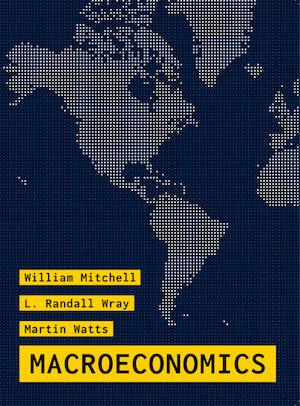Online Food Delivery Services are a popular format for acquiring quick and easy out-of-home meals. This platform offers the perfect mix of convenience and indulgence delivered at your doorstep, but at what cost? This week, VicHealth (@VicHealth) Postdoctoral Research Fellow Dr. Adyya Gupta (@AdyyaGupta) from Deakin University (@IHT_Deakin @GLOBE_obesity) discusses the ripple effects of Online Food Delivery Services on human and planetary health, and offers policy actions for a healthy and sustainable future.
Read MoreAustralians consume an average of a ½ kilo of sugar per week, much of it ‘hidden’ in high-sugar foods. For Sugar Awareness Week (13 – 19 November), VicHealth Postdoctoral Researcher Adyya Gupta (@AdyyaGupta) of Deakin University (@IGHT_Deakin @GLOBE_obesity) explains the current policy climate in Australia for regulating free sugars and what policy options are under consideration to create a healthier food environment.
Read MoreNot too long ago a global survey named Australia the ‘drunkest country in the world.’ Meanwhile, studies are increasingly emphasising that there is no ‘healthy’ or ‘safe’ level of drinking. In today’s post, VicHealth (@VicHealth) Postdoctoral Fellow Florentine Martino (@FP_Martino) of Deakin University (@IHT_Deakin) discusses how the Australian alcohol industry influences health policy through its registered charity DrinkWise.
Read MoreLGBTIQA+ people are more likely to experience marginalisation, stigma, social exclusion, abuse, and violence than the wider community. Philippa Moss, CEO of ACT-based LGBTIQA+ peer-led health service Meridian, and Alison Barclay, researcher and social impact consultant, explain how peer-led services are helping to address this gap, and what more needs to be done.
Read MoreWe know that alcohol, gambling, tobacco and ultra-processed food products can harm health. But how much do we know about the industry associations representing their interests? In today’s piece, VicHealth (@VicHealth) Research Fellow Jennifer Lacy-Nichols (@JLacyNichols), MPH student Naomi Carr and MPH student Cara Platts (all of the University of Melbourne) discuss some of their research on harmful industry associations.
Read MoreThe social determinants of health is a concept that is widely understood in public health circles – access to education, housing, healthcare and income can have a profound impact on the health of individual and societies. But what are commercial determinants of health? In today’s piece, VicHealth (@VicHealth) Research Fellows Alexandra Chung (@Chung_Alexandra) of Monash University, Florentine Martino (@fp_martino) of Deakin University, and Jennifer Lacy-Nichols (@JLacyNichols) of the University of Melbourne explain how commercial actors influence health and argue for prioritisation of health over profits.
Read MoreGood nutrition is a requisite for good health; examining the systems that enable some populations to eat well while others struggle has traditionally been examined using a social determinants of health lens. In today’s post, VicHealth postdoctoral researcher Christina Zorbas (@CZ_Christina) of Deakin University (@IHT_Deakin) teams up with Chat GPT to propose how power theories may illuminate inequities in food access and nutrition.
Read MoreThis article by Jennifer Browne (@DrJennBrowne), Jill Gallagher (@jillgal11942623) and colleagues demonstrates how to adopt a strengths-based approach in research about First Nations children’s health, and also shows us how to write about research in a strengths-based and respectful way. Their research highlights the links between physical health and social/emotional wellbeing, and individual health and community wellbeing. Originally published in The Conversation.
Read MoreThere is increasing interest in the links between women’s health and their socio-economic constraints. Today’s vitally important analysis is drawn from a newly-published longitudinal analysis that demonstrates a range of factors that are overwhelmingly gendered is creating a road to poverty for Australian women, negatively impacting on their mental health in demonstrable ways. This piece is authored by Joanne Enticott (@EnticottJo), Emily Callender (@EmilyCallander), Rhonda Garad, and Helena Teede, all of Monash University’s Centre for Health Reserach and Implementation (@MonashUni). This article originally appeared in Monash Lens and is republished with permission.
Read MoreThere is a long-standing assumption that medicine, and the research underpinning medical interventions, is gender neutral. However, a growing body of evidence is demonstrating that this is not the case, with harmful consequences. Today’s analysis, from Dr Amy Vassallo (@amyjvassallo), Dr Cheryl Carcel (@cheryl_carcel), Prof Louise Chappell (@chappell_louise), Prof Robyn Norton (@RobynNorton8), Dr Janani Shanthosh (@janshanthosh), Prof Mark Woodward and Dr Zoe Wainer (@dr_zoe_wainer) of The George Institute for Global health (@GeorgeInstitute) provide an overview of current research, policy and practice gaps in Australian medical research. This analysis is drawn from their article, recently published in The Medical Journal of Australia.
Read MoreWomen who have been to prison should be a priority group for violence prevention.
Read MoreIn today’s post, David Hildebrand from the Immigration Advice Service in the UK breaks down some of the reasons why people from BAME communities have been disproportionately impacted by COVID-19.
Read MoreSocial inclusion is a determinant of mental health and wellbeing. In today’s analysis, Autumn Pierce (@otonoenespanol) of Women’s Health East (@WHEast) shares highlights from their important new report The Unheard Story: The Impact of Gender on Social Inclusion for Older Women, which explores how inequalities accumulate across the lifespan to increase the risk and impacts of social exclusion for older women.
Read MoreLast month, Labor announced a proposal to create a ‘wellbeing budget,’ similar to that introduced in New Zealand. While Josh Frydenberg found this a ‘laughable’ idea, there is nevertheless a logic that one of the wealthiest countries on Earth could do more to focus on those struggling at the margins. In today’s post, Dr Megan Weier (@MeganWeier) and Isabella Saunders (@Isabellasaund) share the logic for the newly-introduced Social Progress Index, which identifies and tests indicators that could be measured alongside GDP. You can explore more on the Social Progress Index, including accessing the full report.
Read MoreWhile there is rightly considerable policy interest in gender inequality, there has been surprisingly little attention given to the high school years as a key environment for this inequality or as a possible intervention point. Today’s analysis by Abigail Lewis (@AbigailLLew) at Per Capita (@PerCapita) provides a comprehensive overview of how a number of key gender inequities take root in high school, turning happy, confident girls into anxious young women who are already accustomed to experiencing violence and are on track to be paid less than the young men they graduate alongside.
This analysis is a summary from a chapter in an upcoming Per Capita report on gender inequity across the life course in Australia, launching in March 2020 and supported by the Women’s Leadership Institute Australia (@WLIAus). Sign up to Per Capita’s newsletter to be alerted to its publication.
Read MoreAs part of her popular Green New Deal platform, the US member of Congress Alexandria Orcasio-Cortez has been utilising Modern Monetary Theory (MMT) to explain how governments can fund environmental policy reforms. But could MMT also be used by the social sector as a message frame to promote social policy reform? In today’s blog post Dr Andrew Joyce from the Centre for Social Impact and Celia Green from UNSW discuss the how the social sector could leverage insights from MMT to promote paradigm shifting social policy reforms.
Read MoreIt’s a term widely used by politicians, educators, and the media in the UK to describe Black, Asian and Minority Ethnic groups – but we need to be wary of using ‘BAME’, especially within a public health context. Dr Sandhya Duggal draws on her doctoral research to reflect on some of the key issues associated with the term ‘BAME’, with reference to the Indian Punajabi community. Her work highlights two key recommendations – the importance of recognising heterogeneity and multi-generational differences – something ‘BAME’ fails to acknowledge.
Read MoreWith the recent release of the jobactive inquiry report and the current inquiry into ParentsNext, today’s policy analysis could not be more timely. Natalie Jovanovski provides a summary[i] of research she conducted with Policy Whisperer Kay Cook into how current Welfare to Work policies inform single mothers’ food provisioning practices, and the consequent impacts on mental and physical health for both the mothers and their children.
Read More


















